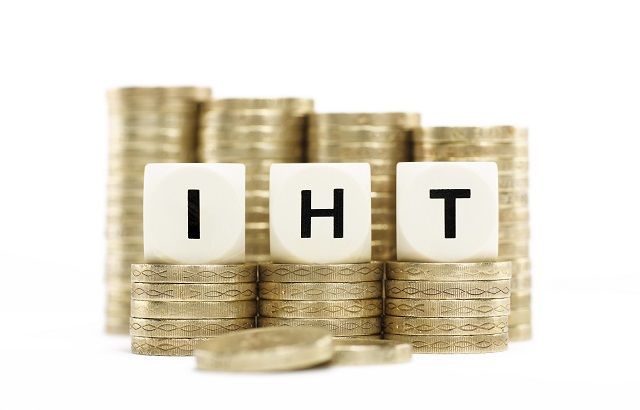HM Revenue and Customs (HMRC) has revealed that a further £603m ($771m, €707m) was raised on inheritance tax (IHT) in July 2023.
Receipts for April 2023 to July 2023 were £2.6bn, which is £200m higher than in the same period a year earlier. 2022/23 saw a record £7.1bn brought in by IHT, but this financial year already looks set to beat that.
Property price gains and frozen thresholds are nudging more households into paying the tax. HMRC’s recent annual bulletin reported that in the financial year 2020/21, 27,000 estates paid IHT, which marked a 17% increase compared to the previous year.
The Office for Budget Responsibility’s latest forecasts suggest IHT will raise £7.2bn this financial year and as much as £8.4bn by 2027/28.
‘Raking in record amounts by stealth’
Rachael Griffin, tax and financial-planning expert at Quilter, said: “The latest HMRC figures show that bereaved families are increasingly filling government coffers due to frozen IHT thresholds.
“The chancellor’s IHT threshold freeze was extended last autumn until at least April 2028 and is set to rake in record amounts by stealth.
“In many cases, higher property prices are helping lift the number of households falling within the scope of IHT. While growth has slowed in the housing market, it hasn’t yet seen the drop in prices some were expecting.
“The average UK home has more than tripled in value over the past two decades from £84,620 in 2000 to £288,000 today, fast approaching the frozen IHT nil-rate band of £325,000.
“Without proper planning, many people could now find themselves in a position where they end up paying IHT unnecessarily: they may never have previously considered the need for IHT planning and therefore have not taken the steps required to mitigate it. There are many actions you can take, including using annual gifting allowances, giving away assets to a spouse and navigating the fiendishly complex residence nil-rate band, which can allow a married couple to pass £1m free of IHT tax to loved ones.
“The freezing of IHT forms part of a broader strategy of fiscal drag by this government, which has frozen income-tax thresholds, capital-gains tax allowances, dividend allowances and the amount you can take tax-free from your pension, to boost revenues.
“The latest figures show receipts from PAYE income tax and national-insurance payments for April to July 2023 were £138.7bn. Given the threshold for the additional rate of income tax has reduced from £150,000 to £125,140, we can expect further rises in coming months.”
‘Lucrative for the treasury’
Laura Hayward, tax partner at Evelyn Partners, added: “The speculation about scrapping IHT as part of a Conservative manifesto pledge at the next general election has quietened down somewhat while many in Westminster are on their summer holidays. But what isn’t taking a break are the year-on-year rises in IHT receipts that are continuing to prove extremely lucrative for the Treasury, as today’s update from HMRC demonstrates.
“Inflationary growth of asset values coupled with frozen allowances means that an ever-increasing number of people are being dragged into paying IHT which can leave the descendants of those who have passed away in a difficult position. Loved ones may need to sell family homes or take on more debt if they need to settle a large IHT bill.
“There is nothing to suggest that the year-on-year increases in IHT receipts will end anytime soon. Families may want to take professional tax-planning advice to ensure they don’t pay more tax than they need to.
“Making gifts to family members can be one of the best places to start in reducing or eliminating an IHT bill. Gifts you make are generally not subject to IHT unless you die within seven years. There is also an annual gift allowance of up to £3,000 per tax year, and this will not be subject to IHT even if you do die within seven years.
“Setting up trusts can be a helpful means of passing on assets, tax efficiently, to the next generation because they help ensure that gifts are used in a responsible way. Trusts can only be accessed at a certain time or for a particular reason.”
No replacement for IHT
Julia Peake, tax and estate planning specialist at Canada Life, said: “Housing-market buoyancy, despite the recent downturn in the market, and tax thresholds being frozen until 2027-28 are driving the record tax take.
“The Conservatives have begun to bang the drum about abolishing IHT as part of their manifesto for the upcoming general election, should they remain in power, but the question that remains is: what would they replace this with? This has been mooted before by this government and yet no plans are in place. This is why having conversations about estate planning and how you want your assets to be protected and passed on in the future needs to happen much earlier in the financial life cycle than it currently does.
“Simple steps families can take include having up-to-date wills in place and using lifetime gifting and trusts. Seeking advice from a regulated financial adviser should be the first important step.”
‘A warning for the public’
Stephen Lowe, group communications director at retirement specialist Just Group, said: “The government looks set to gain bumper returns from IHT for the foreseeable future, as reflected in the OBR estimates.
“These big numbers are good news for the Exchequer but a warning for the public, reminding them to assess the entire value of their estate, including getting an up-to-date valuation of their property.
“Professional, regulated advice can also help people work out the total value of their estate, calculate how much tax they may be likely to owe and understand what options they have to manage that tax bill.”








